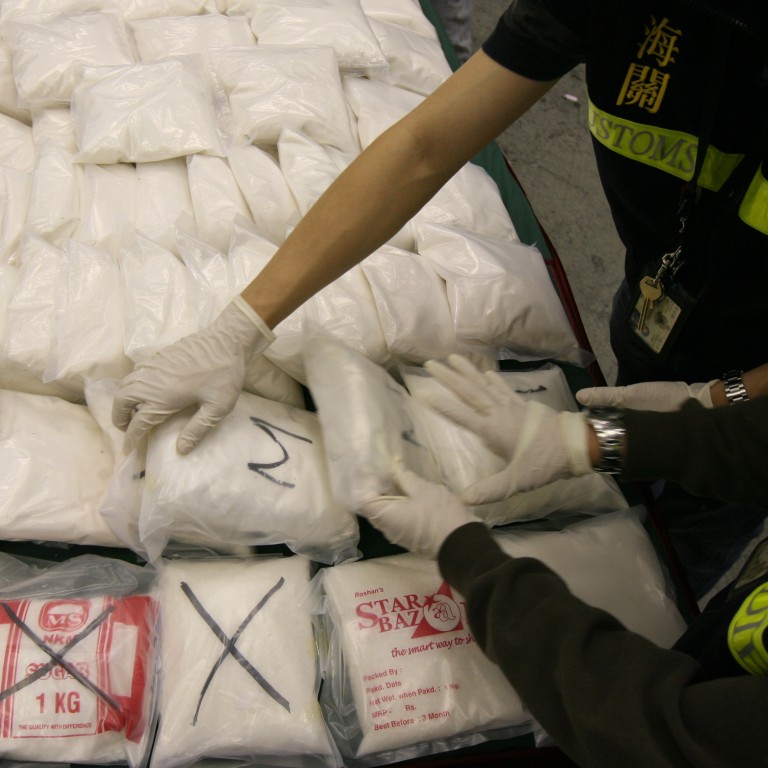
Open discussion needed on drugs
Mixed messages do not make it easy to get a handle on the extent of drug abuse in Hong Kong.
Mixed messages do not make it easy to get a handle on the extent of drug abuse in Hong Kong. A pattern of record drug hauls in recent years has contrasted with falls in the number of cases of abuse handled by the police and the courts. With less than 1 per cent of the population - 8,926 people out of more than seven million - recorded as drug abusers by the Central Registry of Drug Abuse, the city's "problem" does appear to be one that many other less fortunate places would like to have. But two news items on the eve of the UN International Day against Drug Abuse yesterday provide food for reflection. In one, the mainland's National Narcotics Control Commission said abuse was spreading from groups such as the unemployed and migrant workers through more diverse backgrounds in the new urban class, including among civil servants. Hong Kong's socio-economic dynamics may be very different, but is it realistic to think we are totally immune to "social" drug trends? The other news item reported an increase of almost 200 per cent in the amount of drugs - mostly methamphetamine, or Ice, and ketamine - seized by Hong Kong authorities in the first five months of the year, much of it from young couriers or "mules" recruited by drug gangs. The Ice was mainly in transit to foreign markets from drug labs in Guangdong, but the ketamine was mainly for local consumption, customs officers said.
More than 80 per cent of reported Hong Kong users under 21 say they take drugs at their home or a friend's, increasing the likelihood of going undetected. Indeed, KELY drug support group executive director Sky Siu says Hong Kong does in fact have a drug problem and that its hidden nature demands attention. She says conversation about drugs, long accepted elsewhere, remains taboo. She asks, reasonably, how are young people and parents expected to know how to deal with the issue if they cannot access information via open conversation?
Cultural sensitivity must be respected, but not to the extent of hiding a problem that should be brought into the open.

